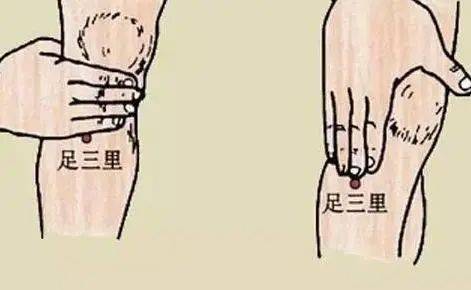Lunisolar Term: Chu Shu - 二十四节气: 处暑
As we are nearing the end of another season, it is time to prepare our bodies for the upcoming change.
Chu Shu 处暑 begins on the 23th of August this year. What is Chu Shu 处暑? This means that summer is coming to an end in the Chinese Lunisolar calendar. The Lunisolar calendar is divided into 24 parts, Chu Shu is the 14th solar term of the 24.
The drop in temperature from day and night is becoming more and more steep, and people often fail to adapt to the change of cold and heat at this time. If you are not careful, it is easy to cause respiratory infections, gastroenteritis, colds and other common diseases. Therefore, in this alternating period from hot to cool, you should adjust your diet and lifestyle accordingly, in order to not compromise your health in the changing of seasons.
The most important part of self-care during this season is to dispel heat and dampness, and to prevent autumn dryness.
A cold food diet should be reduced, especially for infants and the elderly, most of whom have a weak spleen and stomach.
In addition, during the end of summer, people often feel that the skin becomes tight, even peeling; the hair is dry and dull, dandruff increases, and the lips are dry or cracked. Even if you drink a lot of water, you feel that it is difficult to retain that hydration. This phenomenon is what people often call 'autumn dryness'.
Below are some lifestyle tips to help you better adjust to the upcoming Chu Shu 处暑:
1. Protect your navel area:
As the weather gets cooler, the skin at the navel is the thinnest and is particularly sensitive to external stimuli. If the navel is not properly protected, the cold can easily invade the human body. If the cold air accumulates too much in the lower abdomen, it will lead to various diseases of the digestive system and genitourinary system. Such as abdominal pain, diarrhea, chronic prostatitis and impotence in men, dysmenorrhea and irregular menstruation in women, etc.
Not only should we resist the external cold, but we need to also pay attention to the internal cold. There are several Qiangzhuang points in our acupuncture points. You can take moxa sticks and moxibustion at Zhongwan, Shenque, Guanyuan, and Qihai to warm yang and invigorate qi, warm the middle and dispel cold.
At the same time, a cold diet should be reduced. Try not to consume too much of cold summer drinks and fruits.
If you really must have some fruits for the heat, we recommend Grapefruit.
Sour in nature and cold in taste, it can reduce phlegm, coughs, and asthma attacks, invigorate the stomach and help with digestion, reduce swelling and pain.
Grapefruit is known for being rich in vitamin C, which is beneficial to patients with cardiovascular disease and obesity. Most of the organic acids contained in grapefruit are citric acid, and citric acid has the effect of eliminating fatigue. Grapefruit also has the effect of enhancing physical fitness. It can promote the absorption of calcium and iron in the human body; for pregnant women, the natural folic acid it contains can also help prevent anemia and promote fetal development.
Gentle reminder: Although grapefruit is good, it should be consumed in moderation. People with hypoglycemia and bleeding diseases should not eat it. In addition, some medicine (lipid-lowering, antihypertensive, anti-allergic, sedative and hypnotic, immunosuppressive medicine) should not be eaten with grapefruit to avoid adverse reactions.

2. Use less air-conditioning and layer up in the morning and evening

Although it is still hot these days, it is not difficult for us to find that, especially on the way out for a walk after dinner, the breeze can be a bit chilly. After the end of summer, we begin to see a bigger difference in temperature between day and night. Respiratory problems such as asthma are prone to pop up more often than usual. It is also a season of diseases such as hypertension, coronary heart disease, myocardial infarction and strokes.
We suggest to ease off on the Air conditioning, and if it is possible, set it on a timer so that it's not blasting throughout the night. Sooner or later, you can start to wear thicker/bigger coverage pajamas or layering appropriately. Pay special attention to the physical condition of the young and elderly at home, as they can be more sensitive to the temperature changes.
3. Acupressure point: ZuSanLi 足三里

Location of ZuSanLi: Anterior and outer sides of the calf
3 inches below the eyes of the outer knee (about 4 transverse fingers), one transverse finger from the front edge of the tibia.
Along with all the above Acupressure points mentioned: Press each point 1-2 times a day, preferably for 2-3 minutes.
ZuSanLi has the effects of treating: stomach pain/vomiting/abdominal distension, diarrhea, constipation and other gastrointestinal diseases.
If you have moxa sticks, you can moxibustion the acupressure point ZuSanLi. If you don’t have moxa sticks, rubbing ZuSanLi every day before getting up and going to bed can also play a role in supplementing your health.

Make sure to implement these simple lifestyle improvements into your routine, and you'll be better prepared than you ever were. Your body will thank you, and if you keep these good habits up, the benefits will compound over the years.
